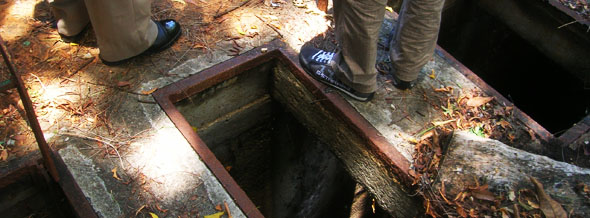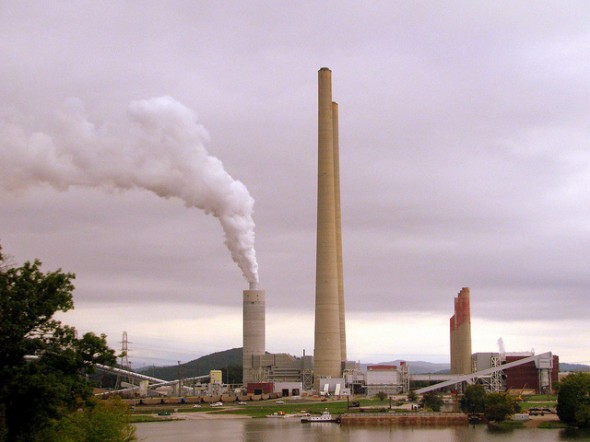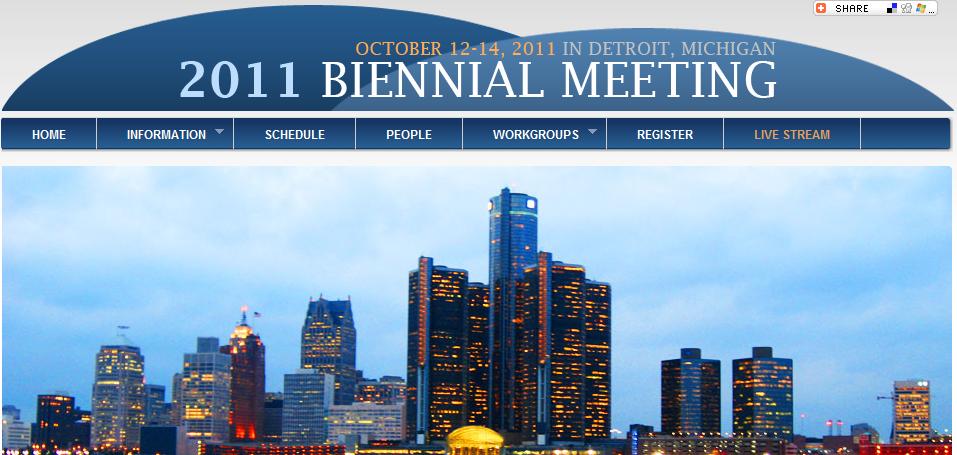Analysis: World Water Day Promises Much, but We’ve Been Here Before
Global leaders lay out steps to improved water quality, but much of the implementation is beyond their control.

By Brett Walton
Circle of Blue
The economics of improving water quality was a major theme during the program at World Water Day last week, so an economic maxim is appropriate to summarize the day: talk is cheap. Rather, more specifically, scripted talk is cheap.
Global leaders attending events in Nairobi, Kenya were nearly unanimous in their message about the need for new water supply paradigms, action plans and investments in water quality. Several United Nations member organizations released reports at the event with statistics aiming to shock and alarm. To wit,
- over half of the world’s hospital beds are occupied with people suffering from water-related illnesses
- nearly 90 percent of the wastewater in developing countries is dumped untreated into rivers, lakes and oceans
- close to 2.6 billion people lack access to basic sanitation facilities
Along with the statistics, officials recommended three approaches to preserving water quality. To begin with, pollution should be prevented in the first place, because doing so is cheaper than cleaning existing contamination. Wastewater that is discharged to water bodies needs to be treated. Ecosystems also need to be valued better according to the services they provide. Wetlands, forests and river banks can filter waste at a fraction of the cost of a treatment plant.
All of this made for a very polished, repetitive set of speeches. The most valuable, revealing statements happened late in the day during a high-level panel when officials were not using prepared comments.
The key remark, as is often the case, was brief and direct, without the padding used in government-speak to hide meaning. Panel moderator Achim Steiner, the executive director of the United Nations Environment Program, was posing a question about wastewater management.
“This is a simple problem,” Steiner said. “You either filter water before it is consumed, or treat it before discharging it.”
Woah. Hold on, and let’s shine a light on this statement.
Water quality and wastewater management are not simple problems. Simple problems are easily solved – that’s what makes them simple. Many people assume that water quality is a simple problem because it seems that is the case, as Steiner shows in the second part of his statement. Better water quality? Just filter or treat it. Any task reduced to this level can be made ludicrously straightforward. Can you climb Mt. Everest? Of course you can! Just put one foot in front of the other.
This is not to attack Mr. Steiner. He was not available for comment after the panel, so I cannot say whether this was unpolished truth or a hasty off-the-cuff remark. However, comments made by his colleague, Zafar Adeel, show that the simplistic view of water quality used to be the operating principle for the sector.
Adeel, the head of UN-Water which coordinates water activities among the UN’s 27 member organizations, said that in the past, water quality improvement had focused on the technical side of the equation.
“Historically what we have done is stay focused specifically on water issues, water quality, on monitoring and doing research, but to relate it to people’s lives and to relate it to policies is something we have not done very well before,” Adeel told Circle of Blue.
Discussing water quality as a simple problem leads to the promotion of simple solutions – Steiner’s filter or treat dichotomy. This approach has been tried before. The decade 1980-1990 was declared by the UN as the International Decade for Drinking Water and Sanitation. We are currently in our second decade of dedication to these goals. The years 2005-2015 are the UN’s International Decade for Action – Water for Life. There’s a reason for this repetition: we failed the first time.
And you know what? That’s understandable. As we have found out, providing clean drinking water and adequate sanitation is a difficult task, and the UN does not have ultimate responsibility for the world’s drinking water. Experts in Nairobi repeatedly pointed out the UN’s limitations and the need for local and national governments to emphasize water quality in their budgets. The important thing is that all the agencies involved in the water sector have learned from past mistakes.
Judging from the many press conferences and panel discussions, that does seem to be the case. Speakers underscored the necessity of financial sustainability, locally-adapted solutions and better training and management. More emphasis was placed on natural systems than engineered systems, and the consensus was that money alone cannot solve the problem.
The buzzphrase in Nairobi was ecosystem services. That is, the things the environment does naturally to support human life – things like trees scrubbing carbon dioxide from the air or wetlands filtering pollutants out of the water. Protecting these areas can eliminate the need for people to build more expensive mechanical systems.
“Water quality should start in rural areas,” said Christian Nellemann of the United Nations Environment Program. “The best bet is restoration of ecosystems that we are destroying. They are the first step in the waste water process.”
However, notable obstacles prevent more widespread benefit from ecosystem services. For one, the value of the environment is not adequately incorporated into the international market system.
“Investing in nature’s capacity to provide fertile soils, clean water and clean air is something the economic system has to integrate,” Steiner said.
Broadly speaking, this entails paying for natural services – a mindset that is alien to most of the world’s people and unthinkable to others. The former president of Mozambique Joaquim Chissano spoke on the high-level panel about this problem.
Chissano talked about his government’s attempts to get people to pay for the country’s water supply infrastructure. “This water comes from the Limpopo River,” he said the citizens replied. “It was not put here by the state. Why should we have to pay?”
One successful example of payment for ecosystem restoration was highlighted by Pavan Sukdhev, a UN advisor leading The Economics of Ecosystems and Biodiversity study. Sukdhev said the water quality at the bottling sites of water companies Evian and Vittel was deteriorating because of pesticides from upstream farms. The two companies struck a deal with the farmers to pay them to use organic fertilizers and pesticides.
Several experts acknowledged that new regulatory systems need to be in place to put market value on ecosystem services. Countries can receive payment for protecting their forests through the Reducing Emissions from Deforestation and Degradation scheme approved in Copenhagen in December 2009, but wetlands, which are as important for water quality, do not have a similar financial mechanism.
The story to follow coming out of Nairobi will be how governments respond to the call for a re-valuation of the environment and the services it provides. The UNEP calls it the Green Economy Initiative – sustainable economic growth that does not create an expensive ecological mess. Any market-based scheme must be examined to see if real gains are made, or if it produces paper successes. The plan seems like a win-win – better water quality at cheaper cost.
But another economic adage applies here: there’s no such thing as a free lunch. Someone will have to pay, and that might be tricky.
 |
Read more of Circle of Blue’s coverage from World Water Day: A New Mindset for Wastewater Treatment, A Conversation with Zafar Adeel, Kenyan Prison Uses Constructed Wetland, Economics of Water Quality Need Greater Emphasis |
Brett writes about agriculture, energy, infrastructure, and the politics and economics of water in the United States. He also writes the Federal Water Tap, Circle of Blue’s weekly digest of U.S. government water news. He is the winner of two Society of Environmental Journalists reporting awards, one of the top honors in American environmental journalism: first place for explanatory reporting for a series on septic system pollution in the United States(2016) and third place for beat reporting in a small market (2014). He received the Sierra Club’s Distinguished Service Award in 2018. Brett lives in Seattle, where he hikes the mountains and bakes pies. Contact Brett Walton







Definitely not a simple problem! What an understatement!!!